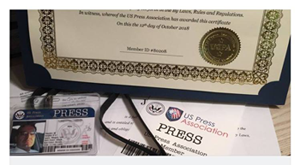
The International Cricket Council (ICC) has announced the 26 match officials for the first round of the ICC Men’s T20 World Cup 2024 in the United States of America (USA) and the West Indies.
Twenty umpires and six match referees will officiate the ninth edition of the event, which will see 20 teams playing 55 matches over 28 days, across nine locations in the biggest ICC T20 World Cup ever.
The experienced group of umpires includes the 2023 winner of the David Shepherd Trophy for ICC Umpire of the Year at the annual ICC Awards, Richard Illingworth, as well as Kumar Dharmasena, Chris Gaffaney and Paul Reiffel, who were appointed for the final of the 2022 edition at the Melbourne Cricket Ground in Australia.
It is an exciting time for Jayaraman Madanagopal, Sam Nogajski, Allahudien Paleker, Rashid Riaz and Asif Yaqoob, who will make their senior men’s event debuts.
The match referees’ team sees the return of Ranjan Madugalle, who oversaw the 2022 Final and also features the format’s most capped referee, Jeff Crowe, with 175 T20Is and Andrew Pycroft, who is one match away from 150 T20Is.
The Match Officials at the ICC Men’s T20 World Cup are:
Umpires: Chris Brown, Kumar Dharmasena, Chris Gaffaney, Michael Gough, Adrian Holdstock, Richard Illingworth, Allahudien Paleker, Richard Kettleborough, Jayaraman Madanagopal, Nitin Menon, Sam Nogajski, Ahsan Raza, Rashid Riaz, Paul Reiffel, Langton Rusere, Shahid Saikat, Rodney Tucker, Alex Wharf, Joel Wilson and Asif Yaqoob.
Match referees: David Boon, Jeff Crowe, Ranjan Madugalle, Andrew Pycroft, Richie Richardson and Javagal Srinath.
ICC General Manager – Cricket, Wasim Khan, said: “We are pleased to announce our team of match referees and umpires for the historic ICC Men’s T20 World Cup.
“Within the selected cohort, we have a compliment of experienced match officials and other high performing members who have been recognized for their strong and consistent performances. The throughput from the pathway programme will continue to see the development and emergence of high-quality match officials across the game.
“With 20 teams and 55 matches played over 28 days, this will be the biggest T20 World Cup ever and we are proud of the team we have assembled. We are confident that our officials will perform strongly.
“We wish them all the best of luck for what promises to be a very exciting tournament.”
[Submitted by Kevin Rademeyer]

Johannesburg, April 30, 2024 - The stage is set, the warriors are named! Coach Rob Walter has revealed the 15-member battalion that will spearhead South Africa's campaign in the ICC Men’s T20 World Cup 2024, igniting fervor and anticipation among cricket enthusiasts.
Aiden Markram assumes the helm, leading the charge into battle in what marks his debut as T20 International captain on the global stage. The squad, carefully curated to blend experience with fresh talent, boasts the inclusion of two uncapped T20I gems - Ryan Rickelton from DP World Lions and Ottniel Baartman of Hollywoodbets Dolphins.
Rickelton's explosive form, culminating in a staggering 530 runs at an average of 58.88 in the Betway SA20, and Baartman's fiery prowess with 18 wickets for Sunrisers Eastern Cape, have earned them well-deserved spots in the squad, promising to inject vigor and dynamism into the Proteas' lineup.
The ensemble features a formidable array of batting prowess with stalwarts Quinton de Kock, Reeza Hendricks, Heinrich Klaasen, David Miller, and the rising star Tristan Stubbs ready to unleash their firepower on the opposition.
The bowling artillery is led by the fearsome duo of Kagiso Rabada and Anrich Nortje, bolstered by the promising talents of Marco Jansen and Gerald Coetzee. The spin department is fortified with the expertise of Bjorn Fortuin, Keshav Maharaj, and Tabraiz Shamsi, offering a diverse and lethal arsenal.
In a testament to depth and preparation, Nandre Burger and Lungi Ngidi stand ready as traveling reserves, ensuring that the squad remains resilient against any adversity.
Coach Walter, acknowledging the arduous task of selection amidst a pool of exceptional talent, expressed confidence in the squad's potential for triumph. He hailed the inclusion of Rickelton and Baartman as a testament to their remarkable performances and unwavering dedication.
The journey towards T20 glory begins with a preparatory T20I series against West Indies, where the Proteas will test their mettle against formidable opponents. Despite the absence of IPL-bound players, the series presents an opportunity for emerging talents to stake their claim.
As South Africa braces for the ultimate showdown in the West Indies and USA, the nation stands united in anticipation, rallying behind their Proteas as they embark on a quest for T20 supremacy.
The countdown has begun, the battle lines are drawn. Let the games begin!
[Submitted by Kevin Rademeyer]
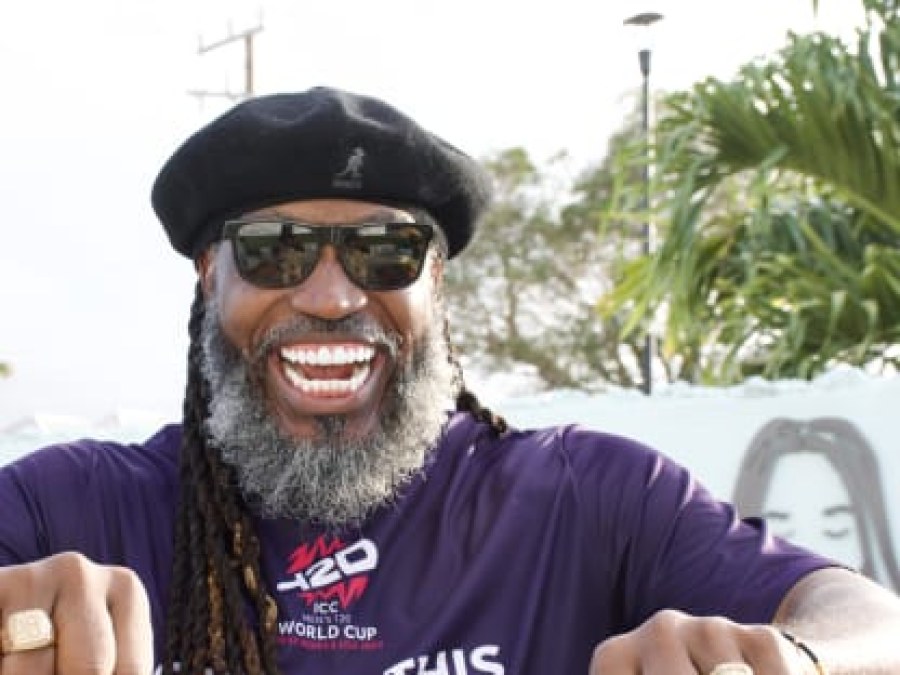
With only 60 days left until the ICC Men's T20 World Cup 2024, cricket fans have every reason to be excited. The organisers have just revealed that a new batch of limited tickets is now available for the cricket extravaganza. Fans can now get their hands on tickets for some thrilling matches, including the much-awaited showdowns between India and Ireland, as well as USA and India. Mark your calendars! Get ready to secure your tickets for the highly anticipated event on Thursday, April 4, at 10 a.m. ET. The tickets will be up for grabs exclusively on t20worldcup.com. Don't miss out on this exciting opportunity!
A mesmerising timelapse video has been revealed to celebrate this significant achievement, showcasing the incredible development of the Nassau County International Cricket Stadium. Located in the heart of New York, this cutting-edge stadium with a seating capacity of 34,000 will play host to eight exhilarating matches of the ICC Men's T20 World Cup 2024.
The demand for tickets has been skyrocketing, showcasing the incredible level of excitement surrounding the World Cup. Exciting news for cricket enthusiasts! Limited tickets are now available for six thrilling matches at the Nassau County International Cricket Stadium. Make sure to secure your spot at the tournament and witness the highly-anticipated clashes between Ireland and India on June 5, as well as USA and India on June 12. Exciting news for cricket fans! Get ready to witness some thrilling matches at the Grand Prairie Cricket Stadium in Texas. Limited tickets will be available for all four matches, starting with the highly anticipated opening match between the USA and Canada on June 1. Don't miss out on this opportunity to experience the excitement and passion of cricket live!
For those seeking a truly exceptional experience, there are still hospitality opportunities up for grabs for all matches at the Nassau County International Cricket Stadium, including the electrifying showdown between India and Pakistan. For more information, head over to tickets.t20worldcup.com or reach out to @ via email.
The development of the Nassau County International Cricket Stadium in Eisenhower Park, New York, is making impressive strides. The construction of the modular framework for the East Stand is making significant progress, with completion just around the corner. Meanwhile, the West Stand is right on schedule and expected to be finished within the next two weeks. The capacity of these stands is more than enough to accommodate over 24,000 enthusiastic fans. In exciting news, the premium hospitality and media pavilions, as well as the outfield and pitch block, are nearing completion.
The buzz surrounding the ICC Men's T20 World Cup has been electric, with recent standout moments including the grand launch of the Trophy Tour at the legendary Empire State Building in New York. In a ceremony filled with New York-inspired flair, the Trophy also made a stop at the Nassau County venue. The event was graced by the presence of two-time T20 World Cup champion Chris Gayle and USA player Ali Khan.
Chris Tetley, the ICC Head of Events, expressed his excitement about the development of the Nassau County International Cricket Stadium. He mentioned that the construction of a fully modular stadium in Nassau County is a groundbreaking achievement for international cricket. Tetley further added that they are pleased to see the construction progressing according to schedule. The sheer magnitude of the venue showcased in the latest timelapse is truly awe-inspiring, making a visit to the stadium an absolute must for any enthusiast.
In just two short months of construction in Nassau County, an incredible feat has been achieved, according to Brett Jones, CEO of T20 USA, Inc. With just 60 days left, we are eagerly anticipating the arrival of cricket enthusiasts from around the globe to this groundbreaking international cricket venue.
Be sure to head over to tickets.t20worldcup.com to secure your seats and be a part of the action at the ICC Men's T20 World Cup 2024. Don't miss out on the chance to witness cricket history in the making!
[Submitted by Kevin Rademeyer]
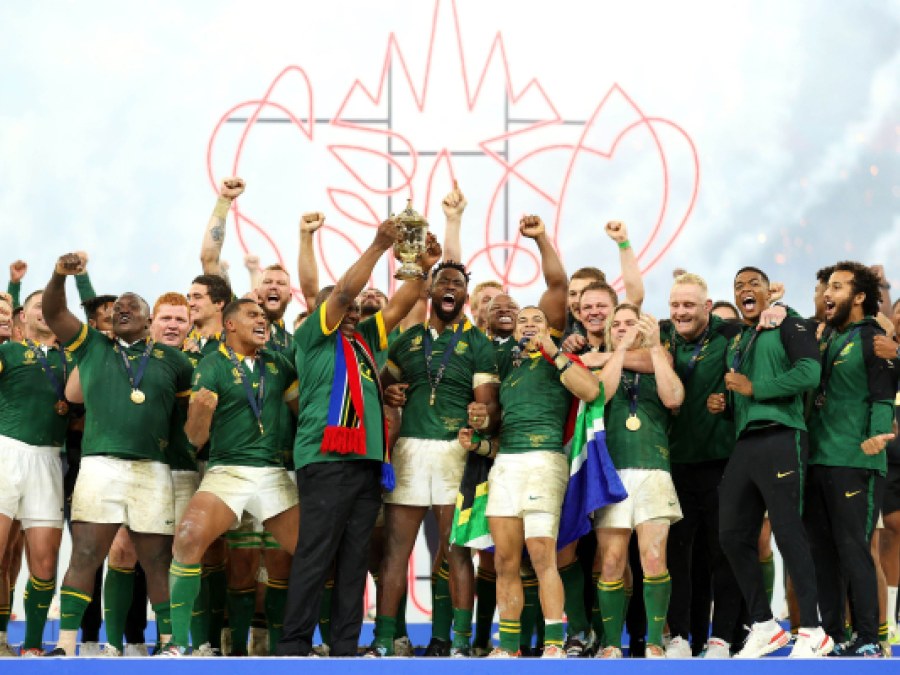
Rugby World Cup 2023 in France has etched its place as the most-watched rugby event in history, solidifying an impressive legacy of record-breaking achievements.
France 2023 amassed a staggering 1.33 billion viewing hours (VH) across both linear and non-linear broadcast platforms, surpassing its northern hemisphere predecessor, England 2015, by 30% (1.01 billion VH) and outpacing Japan 2019 by 19% (1.11 billion VH).
The surge in viewership for the men's Rugby World Cup underscores the tournament's widespread popularity and significance in a fiercely competitive global entertainment landscape. Despite the host nation's early exit in the quarter-finals, France secured the highest worldwide viewership with 481 million VH.
In a surprising turn, eight of the 11 surveyed markets witnessed robust growth in viewership since 2015, defying the general decline in linear TV and increased competition in the entertainment sector. The United Kingdom, in particular, nearly broke its 2015 record (361 million VH), an impressive feat considering a 27% overall decrease in linear TV viewership.
Emerging rugby markets, such as Germany (15.2 million VH), Italy (16.1 million VH), and the USA (11.1 million VH), showcased remarkable growth with increases of 27%, 70%, and 136%, respectively, compared to RWC 2015.
The pinnacle of viewership was reached during the RWC final between South Africa and New Zealand, accumulating a record-breaking 94 million VH globally. The France vs. South Africa quarter-final closely followed with 69 million VH.
A GLOBAL SPECTACLE ACCESSIBLE TO ALL
In alignment with its goal to make rugby accessible worldwide, World Rugby collaborated with free-to-air broadcast partners across most markets, resulting in 85% of France 2023's global viewership coming from free-to-air TV.
The top 10 performing channels were all free-to-air, with TF1 and ITV1 leading in European markets, amassing 322 million and 295 million viewing hours, respectively. TF1 has already renewed its partnership with World Rugby and will broadcast the Women's Rugby World Cup 2025.
Streaming services continued to gain prominence, with ITVX, the British broadcaster's streaming platform, ranking as the eighth most viewed channel during RWC 2023, securing 27 million VH. Overall, 70 million VH were attributed to online streaming services. The international federation's OTT platform, RugbyPass TV, attracted 350,000 subscribers and 1.7 million users during the tournament.
JAPAN 2019 LEGACY AND TIME ZONE IMPACT
The legacy of RWC 2019 in Asia remains palpable, with Japan ranking as the third-highest country in viewership for RWC 2023, accumulating 175.9 million VH over seven weeks. Although a decline from 2019, these figures represent a remarkable 221% increase from England 2015, illustrating the enduring impact of a home Rugby World Cup and the sport's growth in the region.
Despite an unfavorable time zone, with two pool fixtures in the middle of the night, 86% of Japanese viewership came from live programming, showcasing the significant appetite for rugby in this crucial market. Japan's domestic broadcaster featured the most viewed matches, with two national team pool games achieving 33 million viewing hours each, thanks to more accessible kick-off times at 19:45.
World Rugby Chief Executive Alan Gilpin expressed his delight, stating, "Rugby World Cup 2023 has been a fantastic tournament on and off the field." He emphasized the sport's continuous growth and the organization's commitment to collaborating with broadcast partners to enhance the viewing experience for new audiences, aiming to make rugby a truly global sport. The comprehensive reporting of Rugby World Cup 2023 broadcast audiences was conducted by Futures Sport+Entertainment, a member of Interpublic Group, a leading research agency in the sports and entertainment domain.
[Submitted by Kevin Rademeyer]
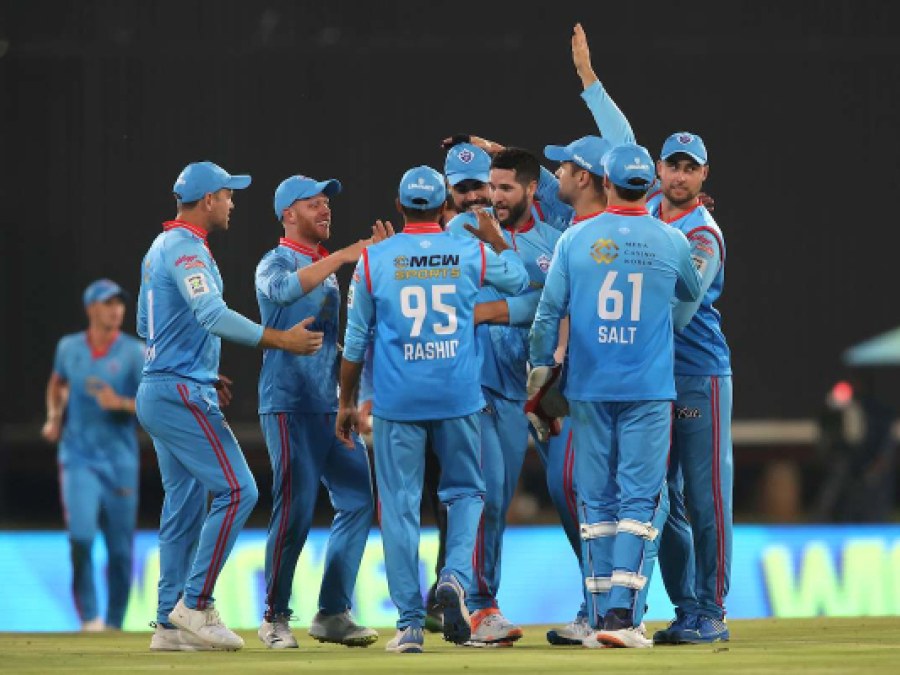
In a dazzling display of cricket prowess at Centurion, the Pretoria Capitals and Sunrisers Eastern Cape set the stage ablaze with a nail-biting Betway SA20 showdown, filled with dramatic twists and turns that left spectators on the edge of their seats.
Facing a challenging pitch, the Capitals, after being put into bat, initially struggled, posting a modest 125. Yet, like a Phoenix rising from the ashes, their bowling unit staged a remarkable comeback, restricting the Sunrisers to 122/9 and securing a thrilling victory by a razor-thin margin of three runs.
This win holds profound significance for the Capitals, who were defeated by the Sunrisers in last season's inaugural final and faced a humiliating bowling attack earlier this week, being bowled out for a mere 52.
More than just a triumph, this victory resurrects the Capitals' Season 2 campaign, lifting Wayne Parnell's team from the basement of the log for the first time this season.
The match hung in the balance until the very last ball, with the Sunrisers requiring four runs for victory. Despite a six off the fourth ball in the final over, Capitals seamer Daryn Dupavillon maintained his composure, delivering a full delivery that flummoxed Sunrisers all-rounder Liam Dawson attempting a ramp shot.
Dawson, who had earlier injected hope into the Sunrisers' innings, striking two sixes on the grass bank, found himself caught by spectator Aidan Evetts, the fifth spectator to claim a share of the Betway SA20 Catch R2 Million competition.
Wayne Parnell (3/33) initiated the Sunrisers' collapse when they seemed poised for victory at 72/4 in the 14th over. Removing both Patrick Kruger and Marco Jansen in a single over, the skipper resurrected his team's fortunes.
Leg-spinner Adil Rashid (3/30) replicated the magic, dismissing Tristan Stubbs (35) and Beyers Swanepoel in a double-wicket over. The Sunrisers lost five wickets for a mere 30 runs during this period before Dawson's late assault reignited hope.
The Capitals' innings mirrored the ebullience of the match, with Jansen (3/27) and Dan Worrall (2/29) causing damage alongside three run-outs. A crucial 52-run partnership between Shane Dadswell (24) and Jimmy Neesham (27) ultimately propelled the Capitals to a competitive and triumphant total.
[Submitted by Kevin Rademeyer]
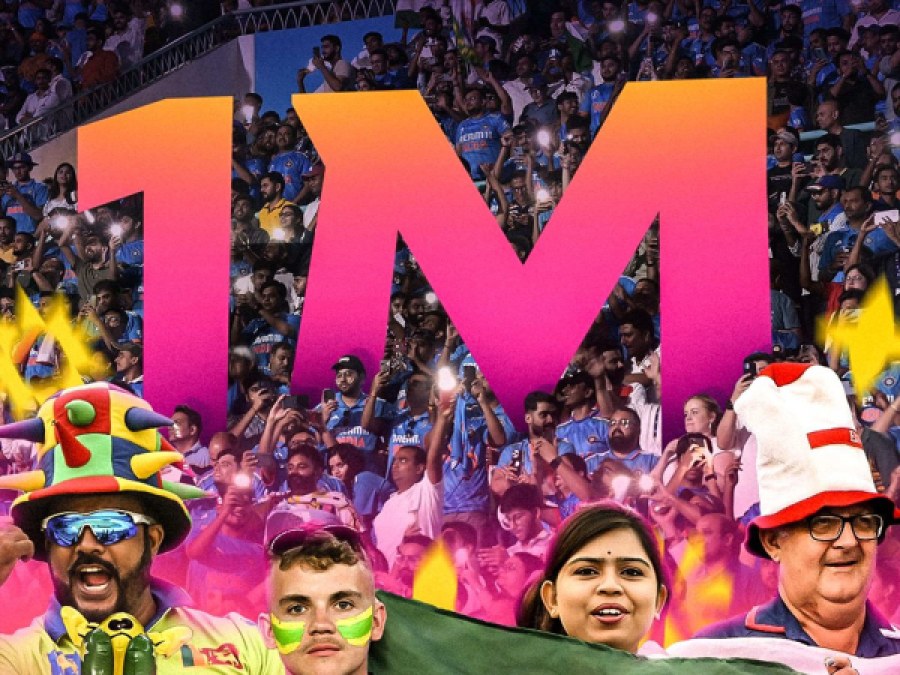
Amidst a thrilling journey encompassing six pivotal games, the fervor of the audience surged, catapulting spectator figures beyond the illustrious one million mark. The crescendo of this sporting spectacle reached its zenith as the World Cup culminated in a breathtaking showdown at the grandeur of the Narendra Modi Stadium in Ahmedabad on a vibrant Sunday.
Spanning from the 5th of October to the 19th of November, this illustrious event vowed to immerse fans within the pulsating heart of the action. The inauguration witnessed an astounding spectacle, marking the highest attendance for a Men’s Cricket World Cup opening match, igniting the passion as England clashed with New Zealand in a riveting encounter, reminiscent of the captivating 2019 final. Subsequently, the historic clash between India and Pakistan in the ICC World Cup history further intensified the fervor as fans thronged the stadiums on the memorable 14th of October.
Surpassing a staggering milestone, the figure of over 1.25 million fervent fans etched a new zenith in cricket's annals, eclipsing the attendance records of all previous ICC events. Notably, the ICC Men’s Cricket World Cup 2015 held in Australia and New Zealand gathered 1,016,420 spectators, while the 2019 edition in England and Wales witnessed 752,000 enthusiasts streaming through the turnstiles.
The 13th edition of the Men’s Cricket World Cup, hosted in India, not only soared past these figures but also shattered numerous records in broadcast and digital viewership. This triumphant feat underlines the sport's global eminence and the ever-burgeoning adoration among aficionados.
Chris Tetley, the illustrious ICC Head of Events, remarked, "The resplendent journey of the ICC Men’s Cricket World Cup 2023 has transcended all expectations, illuminating the finest facets of the game and kindling an ardent passion in the hearts of millions across the globe. The staggering attendance stands as a testament to cricket’s timeless allure and the perpetual excitement encapsulated within the ODI format. This event has not merely entertained but has unified cricket enthusiasts worldwide, fostering an unparalleled celebration of this cherished sport."
"ICC events serve as a cornerstone in nurturing the growth of cricket, inspiring legions of future fans and players across the globe. We extend our heartfelt gratitude to the fervent fans whose unwavering support and enthusiasm rendered the ICC Men’s Cricket World Cup 2023 an unequivocal triumph. We eagerly anticipate crafting more enthralling experiences in future ICC events for the delight of everyone," Tetley concluded, brimming with anticipation for the adventures yet to come.
[Submitted by Kevin Rademeyer]
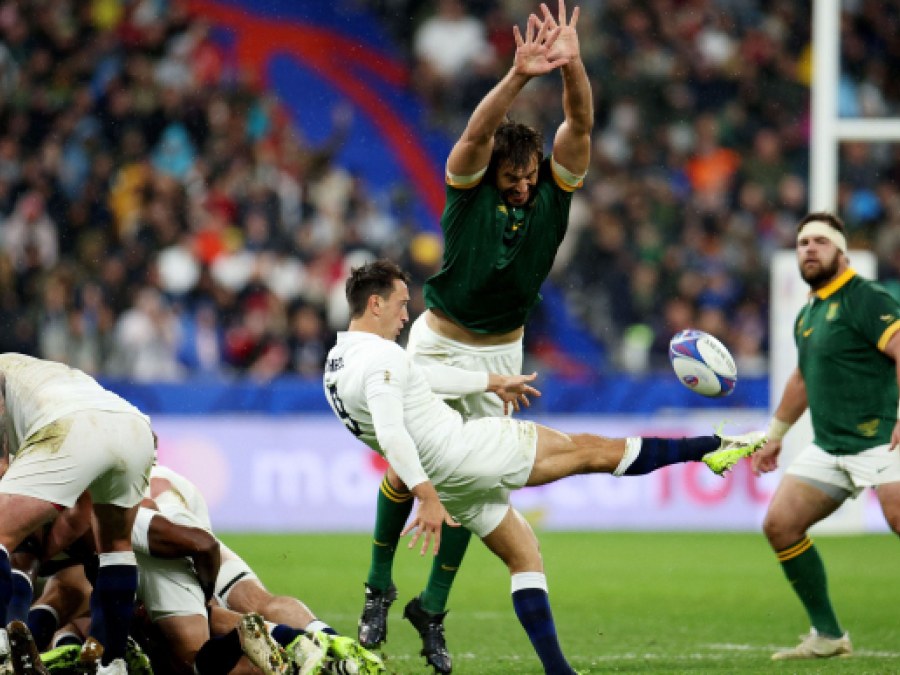
Paris, October 25, 2023 - Brace yourselves, sports enthusiasts! The Springboks are on the brink of a monumental Rugby World Cup showdown against the formidable All Blacks. Yet, the tantalizing allure of this clash is tainted with the enigmatic decisions looming over South Africa's coaching brigade, creating more enigmas than answers in the lead-up to this titanic face-off.
Unyielding in their resolve, the Bok mentors have hinted an unaltered 23-man squad. Despite nail-biting performances in recent playoffs versus France and England, where they eked out razor-thin victories, the confidence they inspire remains divisive, leaving fans and pundits grappling for a verdict: Have the Boks indeed cracked the code to victory?
But the veneer of hope crafted by these victories is cloaked in the uncertainty of the squad's overall mettle, pushing the coaching dream team into a relentless whirlwind of introspection and scrutiny, dissecting every minute detail. As the crescendo of the final team announcement looms large, one thing is abundantly clear: no player is an untouchable icon in this ensemble. The coaching brass reiterate that they possess not one, not two, but a trio of ace alternatives in every position, ready to rise to the occasion when the World Cup fires its ultimate test.
Such resolve might have held water at the dawn of this global spectacle. However, the terrain altered dramatically with the devastating tournament-ending injury to star hooker Malcolm Marx. The Boks have since stretched the limits of their front-row reserves to the brink. A recent storm clouded the Boks' semifinal encounter with England, with accusations of racial slurs hurled at Bongi Mbonambi, the Boks' stand-in captain. The fallout has seen World Rugby launch a full-scale investigation into Tom Curry's claims, casting an even more foreboding shadow over the Boks' final preparations.
The outcome of this inquiry could be seismic. A guilty verdict could see Mbonambi sidelined, a potentially devastating blow to the Boks. In the wake of Marx's absence, Mbonambi's prominence has soared to unprecedented heights, making him the linchpin of the squad.
His leadership shone through when he captained in a World Cup warm-up match in Buenos Aires, a tactical decision that shielded against uncertainties around Siya Kolisi's fitness. Kolisi's return to the pitch has seen him share the captain's armband with Mbonambi, but fate threw a cruel twist in the Boks' path, with Marx suffering a debilitating injury in training after the Scotland encounter. This scenario forced the Boks to explore unconventional solutions in the front row, leaving the coaching brain trust in a quandary.
Their shrewdness in managing player rotations during pool matches reflects their adaptability. Mbonambi's game time has been meticulously doled out, ensuring he's primed for the crunch playoff encounters. The challenge posed by France and England demanded a shift in strategy, with Mbonambi defying tradition to play a full 80 minutes, a rarity for front-row powerhouses. Now, the nagging concern lingers: Will Mbonambi, the indispensable hooker and designated captain for the ultimate showdown, enter the championship fray bearing the weight of an extraordinary playing load in 2023?
Mbonambi's presence on the field has graced 11 of the 12 Tests to date, seven of which saw him start. Amongst the Bok forwards, only Pieter-Steph du Toit and Duane Vermeulen have eclipsed his game time during this World Cup campaign. Yet, strategic management is paramount, and this juggling act could sway the coaching team's verdict, especially concerning the bench.
The Handré Pollard saga adds an additional layer of intrigue. Emerging from a strenuous calf injury, South Africa's preferred flyhalf was notably absent from the World Cup's initial squad. Only a subsequent injury to Marx earned him a call-up. Pollard's appearances have been meticulously stage-managed to ensure he doesn't overexert himself. While he began in a pool match against Tonga, cautious reservations prompted the coaching gurus to keep him on the bench for crucial duels against France and England. This choice paid off handsomely, with Pollard sealing the deal through his late-game heroics.
The million-dollar question now looms large: Should the Boks adhere to the Libbok-Pollard partnership for the grand finale against the All Blacks? The response hinges on Pollard's state of fitness. His seasoned experience and proven match-winning prowess make him an alluring choice. However, with a rain-soaked final forecasted, the suitability of Pollard for such conditions introduces an element of risk. The coaching dilemma is pregnant with implications, as this pivotal choice could determine whether the Boks grasp glory or resign themselves to the position of runners-up.
The selection of the final bench, too, remains an enigma. Ideally, the coaching team would have relished a 6-2 split between forwards and backs. Alas, circumstances dictate a 5-3 divide, accommodating Pollard among the substitutes.
In their most recent clash against the All Blacks, the Boks favored a lopsided 7-1 forward-back split, a risky gambit that nearly backfired. In subsequent games, they embraced a more balanced 6-2 configuration, reigniting hopes of a comeback victory.
The precipice upon which the coaching staff now stands is unprecedented. They are forced to weigh the tantalizing prospect of fresh All Black legs against the wearied Bok ensemble. Players like Mbonambi, Kitshoff, and Malherbe carry the fatigue of intense game time. The performance of the Bok bench will be a cornerstone of their aspirations. A plethora of possibilities presents itself, including the quandary of selecting an additional lock or loose forward, a choice that might spell doom for Libbok, despite his recent heroics.
In the greater tapestry of game management and nerve-wracking goal-kicking, Pollard's unwavering reliability overshadows Libbok's recent exploits. The ultimate verdict on Pollard's readiness will bear colossal consequences, potentially sealing the fate of this epic final.
As the showdown of the century against the All Blacks edges closer, the Bok coaches find themselves at the heart of a raging tempest of uncertainty. Their choices could either etch their names in history or thrust them into the abyss of unfulfilled dreams. The grand revelation awaits at the Stade de France this Saturday, as the rugby universe holds its breath.
In the lead-up to the final, the revered Felix Jones, an imposing figure within the Bok camp, underscores the historic significance of this monumental clash against the All Blacks. He radiates palpable excitement, emphasizing the electric intensity of this long-standing rivalry, elevating the encounter to the highest echelons of sporting spectacle.
Jones also waxes eloquent on the resurgent New Zealand team, spotlighting their impressive strides in rucking and kicking facets of the game. The Bok mentors have left no stone unturned in their meticulous preparation, focusing unwaveringly on player performance and nurturing a cohesive team atmosphere.
As the final inches closer, one thing is beyond dispute: this colossal stage is set for a World Cup final that promises unrivaled drama.
[Submitted by Kevin Rademeyer]
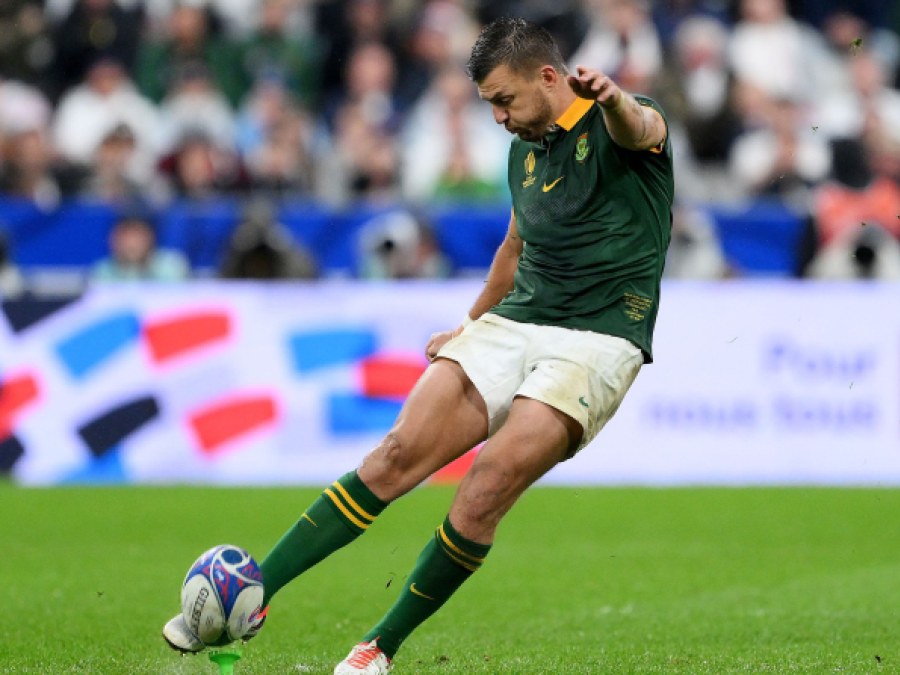
As the dust settled, it was clear that one of these fierce rivals, South Africa or New Zealand, would etch their name in history with a record fourth World Cup victory. With England's departure from the competition, the coveted trophy appears destined to remain in the southern hemisphere.
South Africa's sheer dominance in the scrum played a pivotal role in their triumph over England. However, this defining moment materialized in the dying minutes of another nail-biting knockout match at this World Cup. Replacement props Ox Nche and Vincent Koch executed a monumental, last-ditch effort to win a crucial penalty near the halfway line. This set the stage for the game-winning kick by replacement flyhalf Handre Pollard, executed with less than two minutes left on the clock.
Pollard's ice-cold accuracy was reminiscent of his late-game heroics in the thrilling 29-28 Springboks victory over the host nation, France, in the quarterfinals.
In the post-match euphoria, Pollard remarked, "It's unbelievable. It's a lot of relief in this moment. Frustrated we weren't at our best tonight, especially in that first half. We knew we had so much more to give but fair play to England, they put us under pressure in exactly the right areas. But, jeez, the fight we showed never giving up, it is what we stand for as a team and as a nation."
Throughout the match, England held the lead until Pollard's monumental kick from a distance of approximately 50 meters catapulted the Springboks into their second consecutive Rugby World Cup final. This heartbreaking defeat denied England their long-awaited redemption. South Africa has repeatedly proven to be their nemesis, having defeated them in quarterfinals, semifinals, and two finals, including the title clash four years ago.
England's captain, Owen Farrell, in a poignant moment of reflection, commented, "After a difficult loss like this all that stands with me is how proud I am to be English. You can always look back at things but South Africa are a top, top side. They have shown that over the course of the World Cup."
Throughout the majority of the match, England expertly executed their game plan, asserting control and commanding the field. They capitalized on their strategy of sending high kicks into the Springboks' territory. England's scrumhalf, Alex Mitchell, and flyhalf, Owen Farrell, skillfully maneuvered the high bombs, causing constant trouble for the Springboks. England displayed supremacy in nearly every facet, with Farrell adding four penalties in the first half and a remarkable long-range drop goal in the second half, resulting in a 15-6 lead.
The haunting scoreline echoed past encounters, with England suffering a 15-6 defeat to the Boks in the 2007 final in Paris, which only added to the emotional complexity of the match.
[Submitted by Kevin Rademeyer]
MUMBAI, Saturday - The Wankhede Stadium in Mumbai witnessed a scintillating performance in the ICC Men’s Cricket World Cup as Heinrich Klaasen's remarkable century propelled South Africa to a historic 229-run win over defending champions England. The right-handed dynamo blazed through 109 runs off just 67 balls, embellishing his innings with 12 boundaries and four colossal sixes, setting an imposing target of 400 runs for the 2019 winners.
Klaasen found solid support from the sensational Marco Jansen, who not only smashed an unbeaten 75 off 42 deliveries, featuring three fours and six maximums but also contributed with the ball, grabbing two crucial wickets for 35 runs.
In the absence of captain Temba Bavuma due to illness, Reeza Hendricks (85 off 75 balls, including 9 fours and 3 sixes) and Rassie van der Dussen (60 off 61 balls, with 8 boundaries) also showcased their prowess with crucial half-centuries.
However, England's response was lackluster as they crumbled to a mere 170 runs, getting bowled out in just 22 overs, marking their heaviest One-Day International (ODI) defeat.
For the South African team, this victory was a spectacular comeback following a disappointing performance earlier in the week when they suffered a shocking loss to the Netherlands in Dharamsala. With this win, they climbed to the third position on the table, trailing leaders India and New Zealand by just two points. Their next challenge awaits them on Tuesday when they take on Bangladesh at the same venue.
The South African side will be riding high on confidence after their exceptional display against one of the world's top cricket teams.
England's decision to field first after winning the toss turned out to be a regrettable one, as they conceded the highest ever runs in their ODI history. Despite an early dismissal of Quinton de Kock for just four runs, the Proteas built a solid foundation with a 121-run partnership between Van der Dussen and Hendricks. Klaasen and Markram further accelerated the scoring, putting on 69 runs for the fourth wicket. After the departure of the stand-in captain and David Miller, the South Africans unleashed a run-scoring frenzy.
Klaasen and Jansen's record-breaking sixth-wicket partnership of 151 runs propelled the South African total to 399 for seven, surpassing the previous record of 137 set by Hansie Cronje and Shaun Pollock.
In response, England's batting faltered as they lost key players like Jonny Bairstow, Dawid Malan, Joe Root, and Ben Stokes within the first nine overs. Their innings collapsed to 68 for six. Despite a late fightback from Gus Atkinson and Mark Wood, who added 70 runs for the ninth wicket, it wasn't enough to prevent a record-breaking defeat.
England will need to regroup and recover from this devastating loss as they continue their campaign in the World Cup.
[Submitted by Estea Rademeyer]
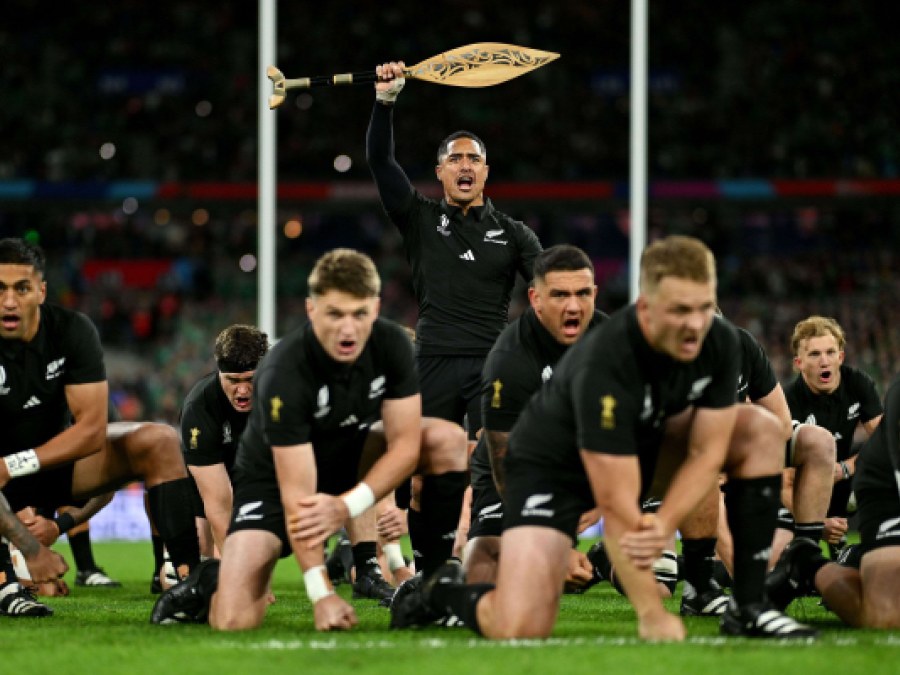
20 October 2023- In the electrifying clash at the Stade de France on Friday, Argentina is set to grace the semi-final stage for the third time, a journey that started back in 2007 and repeated itself in 2015. Meanwhile, the formidable New Zealand squad finds themselves in their ninth Rugby World Cup semi-final, an impressive testament to their rugby dominance.
Marcos Kremer, the unstoppable force in the Argentine lineup, has been a constant presence in their remarkable journey to the semi-finals. He's been a relentless tackling machine, leading the way with a staggering 55 tackles, leaving his fellow back-rower, Juan Martin Gonzalez, trailing behind by 16 tackles. Juan Martin Gonzalez, the only other Puma to have been in the starting lineup for all five matches, has been nothing short of dominant in each of them.
For Sam Cane, the All Blacks' captain, the Rugby World Cup had a frustrating beginning, marred by a back spasm that forced him to sit out New Zealand's first two pool games, including the high-stakes opener against France. However, his triumphant return off the bench against Italy and his belated starting role in the final pool match against Uruguay marked a significant turning point.
In the epic quarter-final showdown against Ireland, Cane showcased his exceptional leadership, making a jaw-dropping 21 tackles, more than anyone else on the pitch. Some keen observers argue that this incredible performance ranks among his finest moments in the iconic black jersey. Cane's resilience and impact on the field prove that even setbacks can't deter a true rugby legend from making his mark on the grandest stage of them all.
Santiago Carreras, a versatile talent in the Argentine squad, embarked on his Rugby World Cup journey as a full-back four years ago at RWC 2019, but fate saw him play on the wing in four games. In the past two years, he underwent a transformation, transitioning to the playmaker role for both his club, England's Gloucester, and his national team. The results have been nothing short of remarkable, and Carreras has embraced the newfound responsibility with open arms in this RWC.
While Argentina has mixed up their game plan with a plethora of attacking kicks, Carreras' exceptional pace and running prowess have remained a vital component of their semi-final journey. The 25-year-old dynamo has carried the ball 46 times across his four starts, not to mention a late replacement outing, leaving an indelible mark on the tournament.
On the other side of the pitch, Richie Mo’unga, the maestro of the fly-half position, has showcased his immense talent throughout this RWC. His opening night performance against France left spectators in awe, marked by a series of pinpoint attacking kicks, a heroic try-saving tackle, and a jaw-dropping range of passing. His spectacular break in a classic quarter-final encounter against Ireland set up a memorable try for Will Jordan, emphasizing the versatile skill set he brings to the All Blacks. Mo'unga's ability to keep the opposition defense guessing is poised to be a key factor in this upcoming semi-final.
Both teams have full-backs who relish launching blistering attacks from deep within their territory. Juan Cruz Mallia, originally a center, has donned the number 15 jersey for the past two years. His relentless ball-carrying has seen him carry the ball a staggering 44 times, and he's accumulated the most meters gained (381) of any Los Pumas player in this competition.
Meanwhile, Beauden Barrett, a RWC 2015 champion and two-time World Rugby Men's 15s Player of the Year, continues to defy the aging process. The 32-year-old has proven himself as New Zealand's top ball-carrier (49) and has covered more ground (488 meters) than any other All Black in this Rugby World Cup. His attacking kicks remain a potent weapon, adding another layer of danger to the All Blacks' arsenal.
In the midst of this thrilling showdown, the two teams are undoubtedly aware of the gravity of the occasion. New Zealand's head coach, Ian Foster, emphasizes the significance of focusing on the present, acknowledging that past results won't guarantee success in this World Cup semi-final. The physicality of the game, akin to their previous battle against Ireland, remains a critical aspect, especially when facing Argentina's combative style of play.
Foster acknowledges the return of number eight Facundo Isa to the Argentine lineup, recognizing him as a powerful and destructive ball-carrier. Discipline, a recurring concern after receiving yellow cards against Ireland, is vital, and the team strives to maintain their improved level of control and accuracy.
As for the presence of legendary former All Blacks fly-half Dan Carter at training, Foster highlights the importance of such legends, their love for the jersey, and the inspiration they bring to the current team. Foster's focus remains firmly on the present and the challenge that lies ahead.
Damian McKenzie, who was on the bench against Ireland but didn't get a chance to play, values the presence and guidance of legends like Dan Carter, particularly in assisting the kickers. He emphasizes that his role on the bench is about making an impact, not trying to prove a point or make up for lost time.
Regarding the crowd's behavior during the haka, McKenzie notes that while it's not within their control, they remain focused on expressing themselves on the field. Their pre-match rituals include some card games and a bit of chocolate the night before, with a focus on staying calm and preparing for a late kick-off.
Anton Lienert-Brown, reflecting on the painful semi-final defeat in 2019, highlights the experience gained and the determination of the team to ensure such a loss doesn't happen again. He underscores that the World Cup is their ultimate goal, and every match is a step toward achieving it. In the next 24 hours, he looks forward to a game of '500' with Damian McKenzie and relishing the build-up to the match.
[Submitted by Kevin Rademeyer]


















